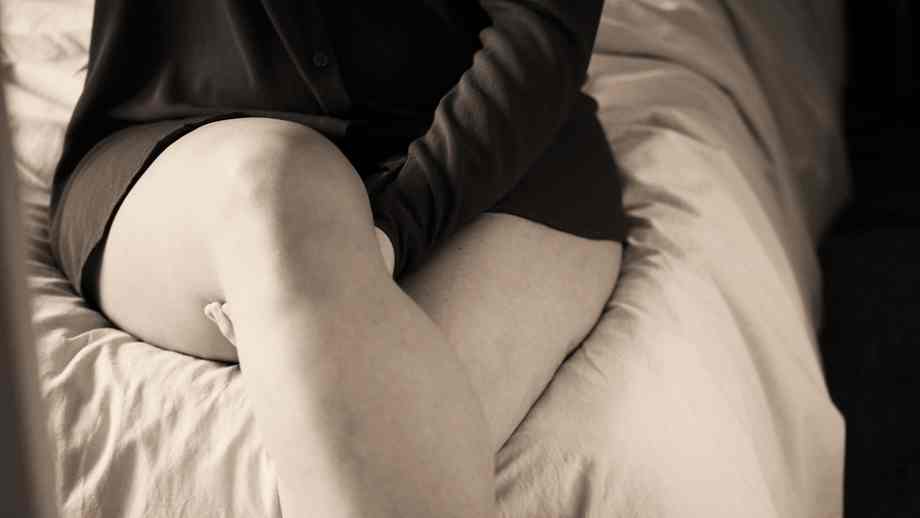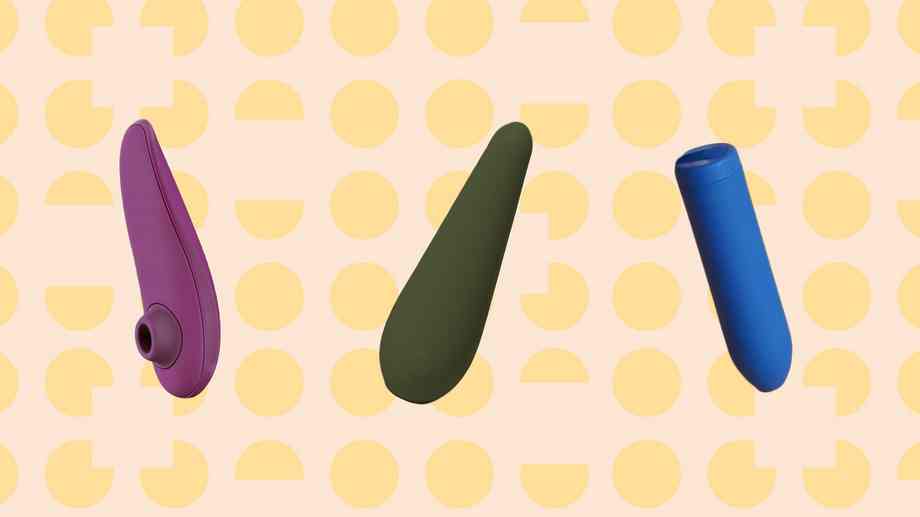Ever questioned what occurs to a vagina after start? The fact is that vaginas don't magically snap again into place after supply. They've gone by way of a serious ordeal that often includes hours of labor.
So what truly occurs? Will your vagina bleed? How lengthy will it harm for? When can you’ve intercourse? We talked to main gynecologists to seek out out precisely what to organize for. Forward, uncover 13 issues to anticipate out of your vagina after start.
1. You'll expertise postpartum bleeding.
After delivering your child, anticipate to expertise postpartum bleeding for as much as six weeks. Through the first ten days, anticipate heavy bleeding and vivid pink blood. You too can anticipate to see small clots (no larger than 1 / 4) in the course of the first three days. That is all regular, as your physique sheds the additional tissue and blood out of your uterus (this discharge is known as lochia). After the primary ten days, the bleeding slows down. You’ll proceed to bleed calmly or spot, nevertheless, for as much as six weeks after you give start vaginally or by C-section.
2. You'll have uterine contractions (a.ok.a. cramps).
You'll expertise cramps as your uterus shrinks to its pre-baby dimension. This course of is known as involution. For a lot of first-time moms, the ache is negligible. After subsequent births, the ache will be extra intense because the uterine muscular tissues have been compromised. Both manner, it is a optimistic signal that your physique is doing what it ought to be doing, and will be addressed with a heat compress and/or ibuprofen. It’ll subside in about three days.
3. Your vagina would possibly tear.
It's not a query of whether or not you'll be sore, however of how a lot you'll be sore. Greater than 53 % of births trigger tearing across the vaginal opening, based on the American School of Obstetricians and Gynecologists. Relying on the severity of the tearing, your vagina and perineum might be sore for 4 to 12 weeks. Vital tears can necessitate stitches after start or, in some instances, surgical procedure to restore the injury. Even with out tearing, you can be left with a bruised perineum.
4. You’ll expertise inside bruising.
When the infant passes by way of, it's inevitable that you simply'll expertise inside bruising in your vagina. You possibly can't see it, however you'll really feel a soreness that ought to subside inside two weeks.
5. Your interval will appear off when it returns.
When your physique begins ovulating once more, your interval might be completely different than the way it was earlier than getting pregnant. Because of all of the hormonal adjustments happening, you could possibly find yourself with a lighter or heavier interval. And it's not simply the depth of the bleeding, however the length, as effectively, explains Dr. Jessica Shepherd, a board-certified ob-gyn and a spokesperson for Paragard.
6. You'll have a (barely) wider vagina.
Issues can even really feel looser down there post-childbirth, but it surely tends to step by step return to regular. If, nevertheless, you’ve a really giant child (or have had many infants), it may not return to precisely the best way it was earlier than. The telltale indicator is tampons: When you insert an everyday tampon and it finally ends up sliding out over time, that may be an indication that your vagina is ever so barely wider than it was prebirth.
7. You would possibly find yourself peeing your self a bit.
It's not unusual to expertise urinary incontinence post-birth, particularly when participating in actions like leaping, working, and even sneezing and laughing.
"As much as 30 % of girls might expertise urinary incontinence for as much as six months," says Dr. Shepherd. “Because the uterus enlarges throughout being pregnant, it impacts the power for the bladder to increase and enlarge when it's crammed, so there are adjustments in how the bladder is ready to operate. Moreover, throughout vaginal supply because the child passes by way of the start canal there will be an impact on the urethra."
Kegel workout routines can assist strengthen these muscular tissues—goal for 5 minutes a day, thrice a day. Docs advise maintaining with this routine throughout being pregnant as effectively, to situation the pelvic ground muscular tissues forward of the start.
8. You'll have to attend about six weeks to have intercourse.
Docs often advise girls wait to have intercourse. “After a girl has a child, it takes about six weeks for a lady's vagina to heal from a supply,” says board-certified ob-gyn Pari Ghodsi, M.D.. Throughout that point, intercourse is off-limits. It's necessary to present your self—and your vagina—a break after giving start. “It’s important for a lady to understand that issues take time,” says Dr. Ghodsi. “It received't really feel the identical at first, however with time, issues usually return to regular.”
Even after issues heal up, you may not really feel emotionally able to re-enter into intimate moments. Dr. Shepherd recommends contemplating speaking to a therapist or intercourse therapist for those who're experiencing nervousness related to sexual intimacy. “Some folks may additionally simply really feel completely different within the pelvic area, and there are pelvic bodily therapists that may assist determine muscular tissues that should be strengthened or loosened with a view to relieve discomfort or urinary incontinence,” explains Dr. Shepherd.
9. Your orgasms may really feel weaker.
If you do return to having intercourse, chances are you’ll suppose your orgasms really feel much less highly effective post-birth. You're not imagining it. That very same weakened pelvic ground that's inflicting leakage can be answerable for weaker orgasms—which is extra incentive to maintain working towards these Kegels. In time, your orgasm ought to return to being its unique earth-shattering self.
10. Your vagina will really feel dry for those who're breastfeeding.
Nursing could cause estrogen deficiency, which in flip causes vaginal dryness, explains Christine Greves, M.D., a board-certified ob-gyn in Orlando, Florida.
It's not a everlasting downside by any means—the dryness will solely final so long as you're nursing—however within the meantime, introducing water-based lube into your intercourse life could make all of the distinction. You too can get a prescription topical estrogen cream that can assist fight the dryness.
11. Your labia might be a distinct colour or form.
Your vulva and vagina earlier than and after start can look completely completely different. Being pregnant causes an increase in estrogen and progesterone, which in flip causes an elevated blood stream. That elevated blood stream could cause the labia to darken and even trigger a slight change in form. The change in form can be because of the surge in blood—the labia majora might retract, and their retraction could cause the labia minora to seem bigger and even present for the primary time.
The coloring and form might return to their unique look when your hormones and blood stream stage out after start, however the change may additionally be everlasting. "There are some girls who say it appears the identical and there are some girls who discover their labia is longer or hangs in another way," explains Dr. Shepherd.
12. You're in a position to conceive instantly.
Whereas it's true that breastfeeding decreases your possibilities of getting pregnant, it's nonetheless potential to conceive. "There may be good information that unique breastfeeding suppresses hormonally the power to ovulate, however there’s at all times that potential which you could nonetheless ovulate (and subsequently conceive),” says Dr. Shepherd.
13. You’ll need postpartum care.
Not unsurprisingly, new mothers might want to see their well being care supplier to verify every thing is therapeutic up and in working order. Your first checkup will happen 4-6 weeks after vaginal start, adopted by one other go to at 12 weeks. That go to is to go over any persevering with points or talk about contraceptive care and contraception, explains Dr. Shepherd.
Ever questioned what occurs to a vagina after start? The fact is that vaginas don't magically snap again into place after supply. They've gone by way of a serious ordeal that often includes hours of labor.
So what truly occurs? Will your vagina bleed? How lengthy will it harm for? When can you’ve intercourse? We talked to main gynecologists to seek out out precisely what to organize for. Forward, uncover 13 issues to anticipate out of your vagina after start.
1. You'll expertise postpartum bleeding.
After delivering your child, anticipate to expertise postpartum bleeding for as much as six weeks. Through the first ten days, anticipate heavy bleeding and vivid pink blood. You too can anticipate to see small clots (no larger than 1 / 4) in the course of the first three days. That is all regular, as your physique sheds the additional tissue and blood out of your uterus (this discharge is known as lochia). After the primary ten days, the bleeding slows down. You’ll proceed to bleed calmly or spot, nevertheless, for as much as six weeks after you give start vaginally or by C-section.
2. You'll have uterine contractions (a.ok.a. cramps).
You'll expertise cramps as your uterus shrinks to its pre-baby dimension. This course of is known as involution. For a lot of first-time moms, the ache is negligible. After subsequent births, the ache will be extra intense because the uterine muscular tissues have been compromised. Both manner, it is a optimistic signal that your physique is doing what it ought to be doing, and will be addressed with a heat compress and/or ibuprofen. It’ll subside in about three days.
3. Your vagina would possibly tear.
It's not a query of whether or not you'll be sore, however of how a lot you'll be sore. Greater than 53 % of births trigger tearing across the vaginal opening, based on the American School of Obstetricians and Gynecologists. Relying on the severity of the tearing, your vagina and perineum might be sore for 4 to 12 weeks. Vital tears can necessitate stitches after start or, in some instances, surgical procedure to restore the injury. Even with out tearing, you can be left with a bruised perineum.
4. You’ll expertise inside bruising.
When the infant passes by way of, it's inevitable that you simply'll expertise inside bruising in your vagina. You possibly can't see it, however you'll really feel a soreness that ought to subside inside two weeks.
5. Your interval will appear off when it returns.
When your physique begins ovulating once more, your interval might be completely different than the way it was earlier than getting pregnant. Because of all of the hormonal adjustments happening, you could possibly find yourself with a lighter or heavier interval. And it's not simply the depth of the bleeding, however the length, as effectively, explains Dr. Jessica Shepherd, a board-certified ob-gyn and a spokesperson for Paragard.
6. You'll have a (barely) wider vagina.
Issues can even really feel looser down there post-childbirth, but it surely tends to step by step return to regular. If, nevertheless, you’ve a really giant child (or have had many infants), it may not return to precisely the best way it was earlier than. The telltale indicator is tampons: When you insert an everyday tampon and it finally ends up sliding out over time, that may be an indication that your vagina is ever so barely wider than it was prebirth.
7. You would possibly find yourself peeing your self a bit.
It's not unusual to expertise urinary incontinence post-birth, particularly when participating in actions like leaping, working, and even sneezing and laughing.
"As much as 30 % of girls might expertise urinary incontinence for as much as six months," says Dr. Shepherd. “Because the uterus enlarges throughout being pregnant, it impacts the power for the bladder to increase and enlarge when it's crammed, so there are adjustments in how the bladder is ready to operate. Moreover, throughout vaginal supply because the child passes by way of the start canal there will be an impact on the urethra."
Kegel workout routines can assist strengthen these muscular tissues—goal for 5 minutes a day, thrice a day. Docs advise maintaining with this routine throughout being pregnant as effectively, to situation the pelvic ground muscular tissues forward of the start.
8. You'll have to attend about six weeks to have intercourse.
Docs often advise girls wait to have intercourse. “After a girl has a child, it takes about six weeks for a lady's vagina to heal from a supply,” says board-certified ob-gyn Pari Ghodsi, M.D.. Throughout that point, intercourse is off-limits. It's necessary to present your self—and your vagina—a break after giving start. “It’s important for a lady to understand that issues take time,” says Dr. Ghodsi. “It received't really feel the identical at first, however with time, issues usually return to regular.”
Even after issues heal up, you may not really feel emotionally able to re-enter into intimate moments. Dr. Shepherd recommends contemplating speaking to a therapist or intercourse therapist for those who're experiencing nervousness related to sexual intimacy. “Some folks may additionally simply really feel completely different within the pelvic area, and there are pelvic bodily therapists that may assist determine muscular tissues that should be strengthened or loosened with a view to relieve discomfort or urinary incontinence,” explains Dr. Shepherd.
9. Your orgasms may really feel weaker.
If you do return to having intercourse, chances are you’ll suppose your orgasms really feel much less highly effective post-birth. You're not imagining it. That very same weakened pelvic ground that's inflicting leakage can be answerable for weaker orgasms—which is extra incentive to maintain working towards these Kegels. In time, your orgasm ought to return to being its unique earth-shattering self.
10. Your vagina will really feel dry for those who're breastfeeding.
Nursing could cause estrogen deficiency, which in flip causes vaginal dryness, explains Christine Greves, M.D., a board-certified ob-gyn in Orlando, Florida.
It's not a everlasting downside by any means—the dryness will solely final so long as you're nursing—however within the meantime, introducing water-based lube into your intercourse life could make all of the distinction. You too can get a prescription topical estrogen cream that can assist fight the dryness.
11. Your labia might be a distinct colour or form.
Your vulva and vagina earlier than and after start can look completely completely different. Being pregnant causes an increase in estrogen and progesterone, which in flip causes an elevated blood stream. That elevated blood stream could cause the labia to darken and even trigger a slight change in form. The change in form can be because of the surge in blood—the labia majora might retract, and their retraction could cause the labia minora to seem bigger and even present for the primary time.
The coloring and form might return to their unique look when your hormones and blood stream stage out after start, however the change may additionally be everlasting. "There are some girls who say it appears the identical and there are some girls who discover their labia is longer or hangs in another way," explains Dr. Shepherd.
12. You're in a position to conceive instantly.
Whereas it's true that breastfeeding decreases your possibilities of getting pregnant, it's nonetheless potential to conceive. "There may be good information that unique breastfeeding suppresses hormonally the power to ovulate, however there’s at all times that potential which you could nonetheless ovulate (and subsequently conceive),” says Dr. Shepherd.
13. You’ll need postpartum care.
Not unsurprisingly, new mothers might want to see their well being care supplier to verify every thing is therapeutic up and in working order. Your first checkup will happen 4-6 weeks after vaginal start, adopted by one other go to at 12 weeks. That go to is to go over any persevering with points or talk about contraceptive care and contraception, explains Dr. Shepherd.








